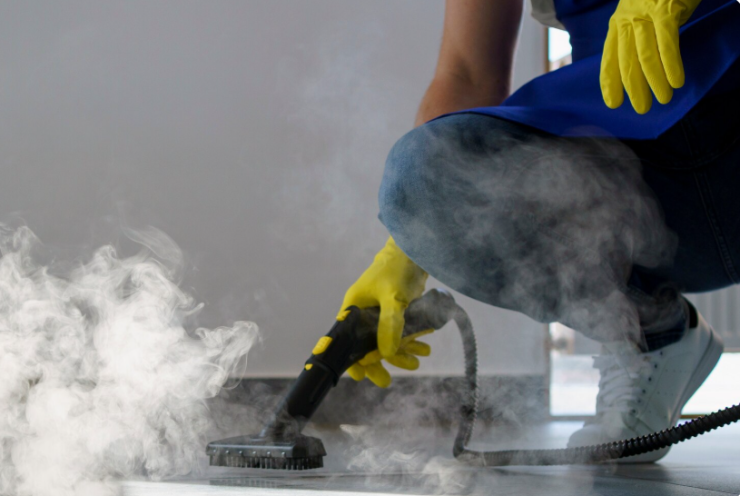How to Select the Best Solar Contractor for Your Home
The Growing Case for Solar Energy Solar panels convert sunlight into electricity, reducing or eliminating electric bills while providing clean...

New construction projects require specialized cleaning services to remove construction debris and prepare buildings for occupancy. New construction cleaning services address the extensive contamination that accumulates during building processes while ensuring properties meet safety and cleanliness standards. Professional cleaning delivers spaces ready for immediate use and occupancy.
Rough cleaning occurs during construction phases to maintain worksite safety and cleanliness while building continues. This stage removes accumulated debris, dust, and hazardous materials that could interfere with ongoing construction work. Rough cleaning maintains safe working conditions and prevents contamination buildup.
Progress cleaning happens at major construction milestones to prepare areas for subsequent work phases. This cleaning removes debris from completed areas while protecting finished surfaces from damage during remaining construction activities. Progress cleaning ensures quality control and prevents costly repairs later.
Final cleaning prepares completed buildings for occupancy by removing all construction-related contamination and debris. This cleaning addresses every surface and system to deliver spaces that meet occupancy standards. Final cleaning is the transition from construction site to usable building.
Interior cleaning encompasses all enclosed spaces including rooms, corridors, stairwells, and mechanical areas throughout new construction projects. Interior work addresses dust accumulation, surface residues, and debris from all construction activities. Complete interior cleaning ensures all spaces are safe and ready for use.
Exterior cleaning removes construction debris and residues from building surfaces, walkways, and landscaped areas surrounding new construction. Exterior work includes window cleaning, pressure washing, and site restoration to deliver attractive, professional appearances. Exterior cleaning completes the construction process.
System cleaning addresses HVAC ducts, plumbing fixtures, and electrical components that may have accumulated dust and debris during construction. System cleaning ensures mechanical and electrical systems operate efficiently and safely from the beginning of occupancy. Clean systems provide better performance and longer service life.
Concrete dust removal requires specialized equipment and techniques due to the fine, persistent nature of concrete particles. Standard cleaning methods cannot adequately address concrete contamination that penetrates surfaces and air systems. Professional concrete dust removal ensures thorough cleanup and prevents health hazards.
Paint and adhesive residue removal addresses spills, overspray, and excess materials that accumulate during finishing work. These residues require specific solvents and techniques for safe, complete removal without damaging underlying surfaces. Professional residue removal restores original surface appearance.
Protective film removal involves carefully removing temporary coverings from windows, fixtures, and appliances without leaving adhesive residues. Improper removal can damage surfaces or leave unsightly marks that require additional cleaning. Professional film removal ensures clean, undamaged surfaces.
Air quality management during cleaning operations prevents redistribution of construction contaminants throughout buildings. Professional cleaning services use air filtration systems and ventilation control to maintain clean air during cleanup activities. Air quality management protects both workers and future occupants.
Chemical exposure control ensures cleaning products are used safely without creating indoor air quality problems or surface damage. Professional services select appropriate products and application methods for construction cleanup requirements. Proper chemical control ensures safe, effective cleaning results.
Waste management addresses the large volumes of debris and contaminated materials generated during new construction cleaning. Professional services arrange appropriate disposal methods while maximizing recycling opportunities. Responsible waste management protects the environment and reduces disposal costs.
Industry standards guide new construction cleaning procedures to ensure consistent, professional results across all projects. Professional cleaning services follow established protocols that address all aspects of construction cleanup. Standard procedures ensure cleaning that meets occupancy requirements.
Pre-occupancy inspections verify cleaning work meets building codes and customer expectations before spaces are delivered. These inspections identify any deficiencies requiring attention and ensure all cleaning requirements have been fulfilled. Pre-occupancy inspections prevent delays in building turnover.
Certification procedures document cleaning work completion and compliance with applicable standards and regulations. Professional services provide certificates and documentation required for occupancy permits and insurance purposes. Proper certification ensures buildings are ready for intended use.
Industrial cleaning equipment designed for construction cleanup provides the power and filtration needed for effective debris removal. Standard janitorial equipment cannot handle the volume and type of contamination present in new construction. Industrial equipment ensures thorough, efficient cleaning results.
Safety equipment protects cleaning workers from construction-related hazards including dust, chemicals, and sharp debris. Professional services provide appropriate personal protective equipment and follow safety protocols during all cleaning operations. Proper safety equipment prevents injuries and ensures worker protection.
Transportation and disposal capabilities handle the large volumes of waste generated during new construction cleaning. Professional services have equipment and arrangements needed for efficient debris removal and disposal. Adequate disposal capabilities prevent project delays and maintain clean worksites.
Construction schedule integration ensures cleaning work occurs at appropriate times without interfering with ongoing building activities. Cleaning must coordinate with construction milestones while maintaining progress toward occupancy deadlines. Proper scheduling prevents conflicts and delays.
Multi-trade coordination manages cleaning activities alongside final construction work including landscaping, utility connections, and final inspections. Multiple contractors working simultaneously require careful coordination to prevent conflicts. Professional coordination ensures all work progresses efficiently.
Timeline management ensures cleaning work progresses according to occupancy requirements and building turnover schedules. New construction projects often have firm deadlines that require careful planning and execution. Timeline management ensures buildings are ready when needed.
Project scope definition establishes cleaning requirements and costs based on building size, complexity, and contamination levels. Clear scope definition prevents misunderstandings and cost overruns during cleaning operations. Proper scope planning ensures appropriate budgeting for cleaning services.
Contractor selection balances cost considerations with quality requirements to ensure satisfactory cleaning results within budget constraints. The lowest cost option may not provide adequate cleaning for occupancy requirements. Balanced selection ensures value and performance.
Performance monitoring tracks cleaning progress and costs to ensure projects stay within budget while meeting quality standards. Regular monitoring identifies possible issues early and allows corrective action. Performance monitoring ensures successful project completion.